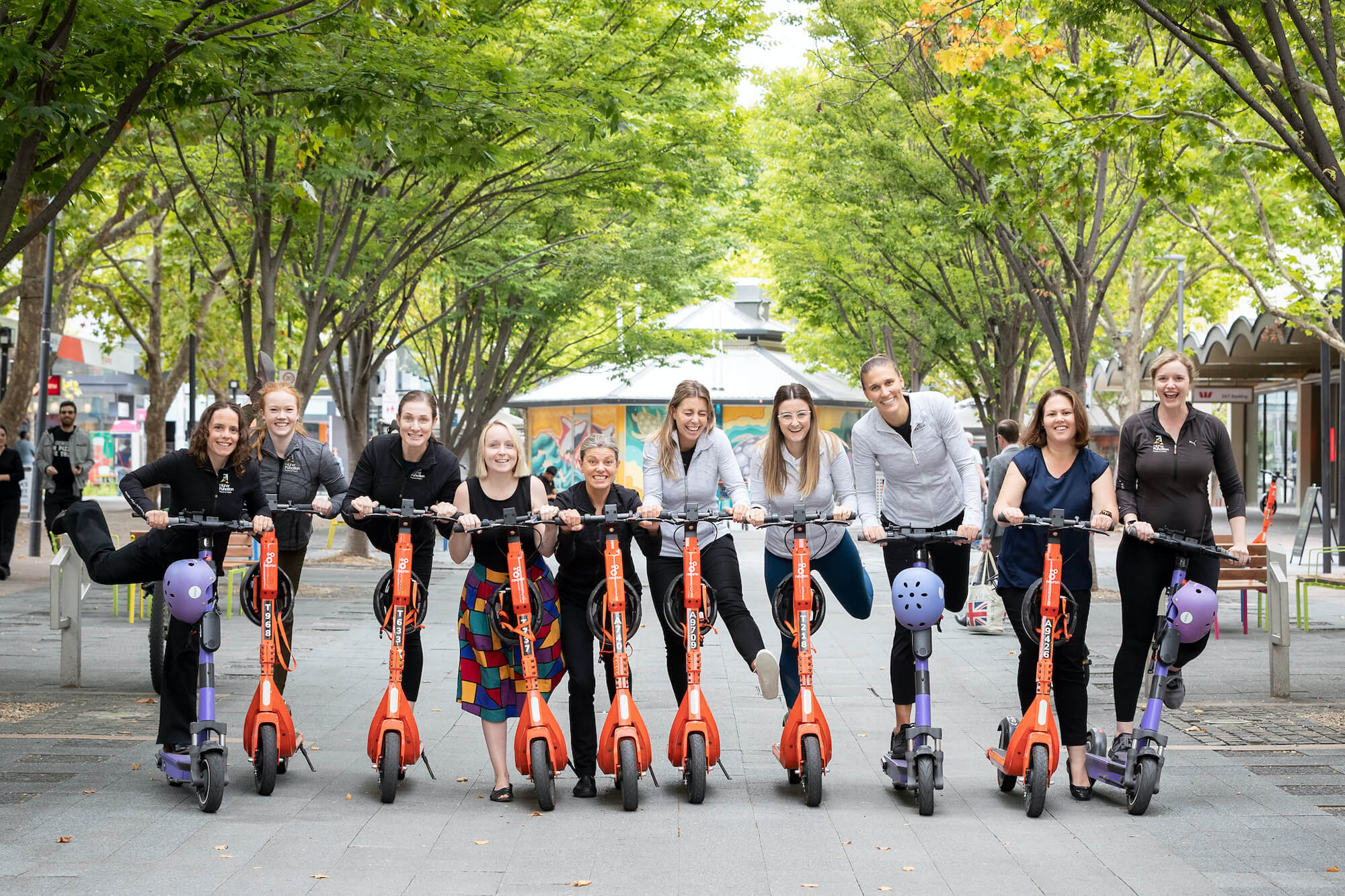By Alyce Shearing & Janet Fabbri – Physiotherapists
What is a Frozen Shoulder?
“Frozen shoulder” or “adhesive capsulitis” can be a highly debilitating and painful condition. It can occur spontaneously, i.e. no injury, or can come after a shoulder injury. Its cause is unknown and affects those typically between 40-60 years of age affecting up to 5% of general population and up to 30% of those with Diabetes mellitus (Jared Powell), and can occur with other metabolic and hormonal syndromes. What is known about it is that there is a change in the structure of the connective tissue in the capsule of the shoulder joint in which they become more contractile (shorter and stiffer) and also inflamed. (These same changes have also been found in Dupuytrens Contracture of the hand). The name “Frozen shoulder” describes it well with your shoulder freezing up (stiffening and becoming painful) and then slowly thawing out over 15-20 months.
There are 3 phases of frozen shoulder:
Freezing phase: A very painful period where movement is very sore, and your shoulder loses range of movement. Commonly, high pain at night which is not dependent of your sleep position. Physiotherapy in this phase is limited yet it is still very important with a high emphasis on education and exercising within pain tolerance. You may feel unsure how much to move it, for fear of it worsening, but it is important to keep it moving gently and often.
Frozen phase: The pain is usually better in this phase, yet the shoulder remains “stuck” in its limited range and therefore highly limited in its function. Manual therapy can be started typically in the phase with mobilisations and take-home stretches to regain your range quicker. A strengthening program within available range is also recommended here as there is evidence to support that it can assist with decreasing pain (Rawat, Pallavi et al. 2016)
Thawing phase: This is when the range slowly returns and a great phase to complete a strengthening program guided by your Physiotherapist or Exercise Physiologist.
How can Physiotherapy help Frozen Shoulder?
Although frozen shoulder is still a bit of a mystery the research available does support Physiotherapy as the most cost effective and beneficial treatment (Rangan, Amar et al. 2020). Most Frozen shoulders take 15-20 months to resolve yet only 26% who do not receive treatment returned to full function (Vastamäki, Heidi et al.2012) and therefore, they do not typically just resolve on their own, with time (Wong, C K et al. 2017). The latest evidence also supports having a cortisone injection to reduce the inflammation (Challoumas, et al 2020). This in conjunction with manual therapy / mobilisation, and progressive exercises to be done either using our Pilates and rehab gym equipment, as well as a home exercise program has been shown to be the most effective treatment. Having a regular review with your Physio to upgrade your exercise program is recommended.
References
Rangan, Amar et al. “Management of adults with primary frozen shoulder in secondary care (UK FROST): a multicentre, pragmatic, three-arm, superiority randomised clinical trial.” Lancet (London, England) vol. 396,10256 (2020): 977-989. doi:10.1016/S0140-6736(20)31965-6
Rawat, Pallavi et al. “Effect of rotator cuff strengthening as an adjunct to standard care in subjects with adhesive capsulitis: A randomized controlled trial.” Journal of hand therapy : official journal of the American Society of Hand Therapists vol. 30,3 (2017): 235-241.e8. doi:10.1016/j.jht.2016.10.007
Vastamäki, Heidi et al. “The natural history of idiopathic frozen shoulder: a 2- to 27-year followup study.” Clinical orthopaedics and related research vol. 470,4 (2012): 1133-43. doi:10.1007/s11999-011-2176-4
Wong, C K et al. “Natural history of frozen shoulder: fact or fiction? A systematic review.” Physiotherapy vol. 103,1 (2017): 40-47. doi:10.1016/j.physio.2016.05.009
Vastamäki, Heidi et al. “The natural history of idiopathic frozen shoulder: a 2- to 27-year followup study.” Clinical orthopaedics and related research vol. 470,4 (2012): 1133-43. doi:10.1007/s11999-011-2176-4.
Wong, C K et al. “Natural history of frozen shoulder: fact or fiction? A systematic review.” Physiotherapy vol. 103,1 (2017): 40-47. doi:10.1016/j.physio.2016.05.009
Rangan, Amar et al. “Management of adults with primary frozen shoulder in secondary care (UK FROST): a multicentre, pragmatic, three-arm, superiority randomised clinical trial.” Lancet (London, England) vol. 396,10256 (2020): 977-989. doi:10.1016/S0140-6736(20)31965-6
Rawat, Pallavi et al. “Effect of rotator cuff strengthening as an adjunct to standard care in subjects with adhesive capsulitis: A randomized controlled trial.” Journal of hand therapy : official journal of the American Society of Hand Therapists vol. 30,3 (2017): 235-241.e8. doi:10.1016/j.jht.2016.10.007
Challoumas D, Biddle M, McLean M, Millar NL . Comparison of treatments for frozen shoulder: a systematic review and meta-analysis. JAMA Network Open 2020 Dec;3(12):e2029581. systematic review


